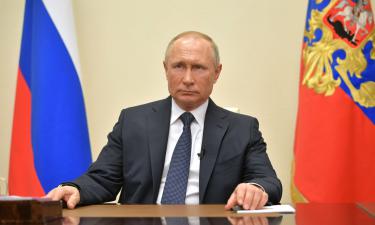AIDS: Why Are Women Being Ignored?
An alarming truth coming out of the XVIII International AIDS Conference in Vienna is that women’s voices are not being heard, women are not participating at the same level as men in decision-making processes to find sustainable solutions. Gender exclusion norms were mentioned as the main reason by almost 80 per cent of those polled.

As with other areas of policy-making, such as crisis management, peace processes and sustainable solutions to complex problems, the case of HIV/AIDS is no exception: the voices of women are not heard.
This has been made patently clear at the XVIII International AIDS Conference in Vienna, where the report “Transforming the National AIDS Response: Advancing Women’s Leadership and Participation”, sponsored by the United Nations Development Fund for Women, UNIFEM, and the ATHENA Network has revealed that the voices of women are in general terms missing from the decision-making processes in policies to counter HIV/AIDS.
Inés Alberdi, Executive Director of UNIFEM, stated at the Conference (July 18 to 23) that “We have repeatedly heard the voices of women as they provide concrete examples of what can work on the ground in preventing or reducing the epidemic. But these voices are missing in policy responses”.
And the fact that women’s voices are largely absent is as alarming as it is a telling statement on the male-dominated world we live in today, one in which males cause the majority of the problems and a clear sign that if human society is to call itself democratic, things have to change. The reason why it is alarming is because a growing number of women are becoming infected by their husbands, who choose to have casual sex with prostitutes, without protection.
It is also alarming because outdated, reactionary and repressive gender norms are cited as being the main factor in this universal exclusion process by 79% of the interviewees asked to explain why, despite the fact that half of those infected with HIV/AIDS are women. We are not speaking about a village council or some meeting among elders to decide how to distribute the latest harvest.
We are speaking about agenda-setting bodies such as the National AIDS Coordinating Authority or the Country Coordinating Mechanisms of the Global Fund to fight AIDS, TB and Malaria.
According to UNIFEM, “almost half the 31.3 million HIV-positive adults in the world are women but the proportion of women living with HIV is increasing”. In Sub-Saharan Africa, the figure is nearly 60 per cent; in the Caribbean, the prevalence rate (the number of people estimated to be living with HIV/AIDS) has increased from 46% in 2001 to 53% in 2008. Today, around 46% of newly reported cases in the CIS and Eastern Europe are among women.
Young women account for around 66% of new cases among the 15-24 age group, and according to the World Health Organization, AIDS is the leading cause of death among women in the 15/44 age group in middle-income countries.
When we consider that over 90% on the 1.7 million women living with HIV in Asia became infected from their husbands/partners in long-term relationships and when we consider the fact that gender inequality renders these women powerless to do anything, then we see the utter injustice of the situation.
Yet it is the men who decide: the men, under whose able management the world has reached the pitiful state it is in today. How can humanity collectively use the world “democratic” if it does not practise the most rudimentary form of the ideal and include more than a token number of women in serious decision-making processes?
Timothy BANCROFT-HINCHEY
PRAVDA.Ru
Subscribe to Pravda.Ru Telegram channel, Facebook, RSS!





